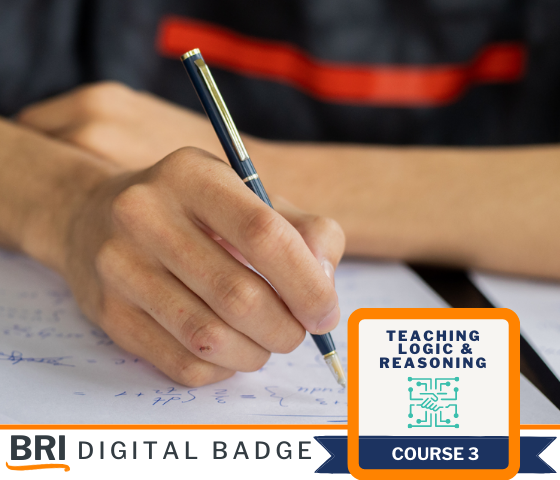
Effective Logic

“All opinions are not equal. Some are a very great deal more robust, sophisticated and well supported in logic and argument than others.”
— Douglas Adams, The Salmon of Doubt, 2005
Introduction
Welcome to Effective Logic , the third course in the BRI’s online program, Teaching Logic and Reasoning!
When we listen to the news or to conversations in our daily lives, it is usually easy to pick out where the argument or reasoning went off the rails. Almost instinctually we want to jump in and correct the speaker. But rather than starting with the mistakes in reasoning, we should ensure we can build our own arguments with good reasoning. Before we can correct mistakes in reasoning, we should understand what good reasoning looks like.
This course focuses on deductive and inductive reasoning as an entry to building better arguments. What is the difference between deductive and inductive reasoning? Where do I encounter each and how do I use them? The resources in this module will provide examples of both forms of reasoning before exploring how this works in civic life and in your classroom.
Learning Objectives
Upon completion of this course, you will be able to:
-
-
- Explain the difference between deductive and non-deductive reasoning.
- Analyze arguments to determine the type of reasoning used.
- Analyze applications of deductive and inductive reasoning in civic life and the classroom.
- Reflect on the use of their role in supporting deductive and inductive reasoning in civic life and the classroom.
- Explain the difference between deductive and non-deductive reasoning.
-
